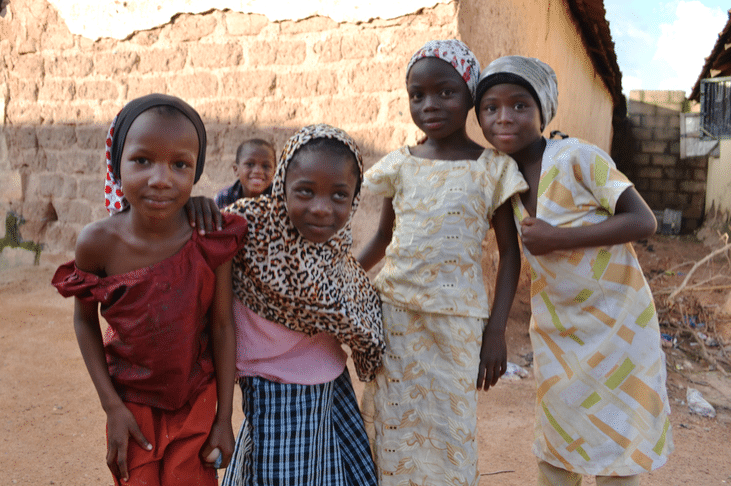Help our local partners realise their vision of hope for their communities

Last month in London we celebrated a global summit to end sexual violence in conflict. It was, in my opinion, a great event that brought an under-recognised issue to the attention of the mainstream media. However, it is important to bear in mind that gender based violence and sexual violence goes beyond officially recognised conflict settings. Violence against women is also common in areas surrounding camps for internally displaced persons, urban areas where many people flee to due to conflict and in fragile political settings where violence is ongoing. An example of this last one can be found in Nigeria with the abduction of schoolgirls (perhaps to be sold for sexual slavery or forced marriage) by Boko Haram.
Nearly three months have passed since the militant faction Boko Haram abducted over 270 girls. A few days ago we had some good news as approximately 63 of the girls who were abducted in a separate attack last month managed to escape. However, there are many other women and girls still in captivity. When the abduction happened in April, the news received massive attention on social media and many prominent leaders, civil society and many others across the globe raised their voices to demand action to bring these girls back to their families. The mass abduction of over 270 schoolgirls in Chibok and the continuing abductions of many other women in north-eastern Nigeria reminds us that different forms of gender based violence occur, even in places that are not internationally recognised as conflict zones. Post-conflict and fragile states can create the conditions for all forms of violence, including gender based violence, to take place.
Boko Haram, which means “Western Education is sinful”, have used gender based violence throughout their operations and have been kidnapping women as a war tactic for a number of years as retaliation for government arrests of militant leader’s wives and children. Zenn & Pearson point out the instrumental use of women by both Boko Haram and Nigerian Security Forces in the ongoing violence in Nigeria.
Boko Haram has also specifically targeted Christian women, with a reported increase in gender based violence against Christian women in Northern Nigeria. In Nigeria, as in many other internal conflicts, women are victims of different forms of sexual and gender based violence. Zenn & Pearson describe the case of a 19 year old Christian girl who was kidnapped by Boko Haram. This girl was forced to clean and cook for the rebels, to convert to Islam, to marry a member of the group and to undertake operational duties for the men that looked after her while she was held in captivity. The armed group has also openly threatened to sell girls and women which provoked an immediate reaction from the UN warning that the perpetrators would be liable for war crimes.
Unfortunately, targeting schools and girls’ access to education is a common method used by many groups around the world to force girls to withdraw from school and to exercise terror among communities. Although it is not a method exclusive to Nigeria, the Nigerian case received the highest amount of international attention.
It is time to act together globally to stop the violence and bring freedom to the millions of girls who work under slave labour conditions, face rape and murder, are exploited and trafficked, are forced into marriage and are victims of female genital mutilation. Let’s not forget our girls in Nigeria and keep up the pressure on the international community and the Nigerian Government to bring back our girls safely. And also let´s not forget the millions of other girls around the world who are struggling to pursue an education and are victims of different forms of gender based violence.